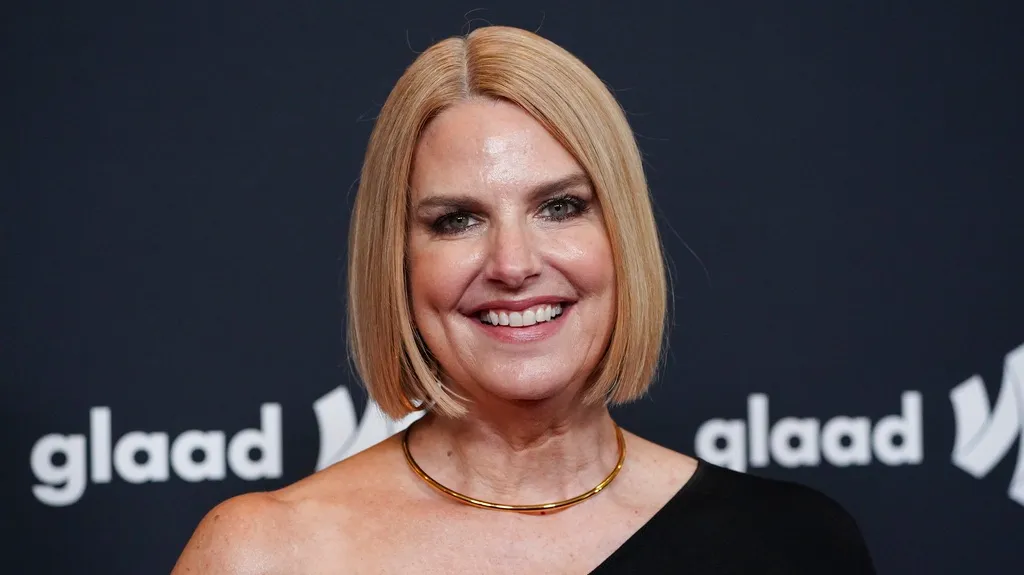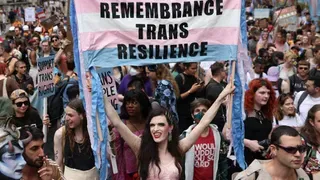July 5, 2013
Marriage Equality's Deep Historical Roots Reach to 1973
Kilian Melloy READ TIME: 6 MIN.
With the recent Supreme Court victory of America's same-sex families, nine years after marriage for gay and lesbian couples was first legalized in Massachusetts, there's a renewed sense of optimism for the future of the equal rights movement. There might also be something of a sense of vindication for those who believed in the institution of marriage so fervently that they worked, sometimes with only slender hope against long odds, to gain the right to participate in it.
When it comes to marriage equality leaders, it would be a mistake to stop with the plaintiffs of the Goodridge decision which, in 2003, cleared the way for the nation's first legal same-sex weddings. Indeed, as with so many aspects of the GLBT community's push for equal rights, this particular battle has deeper historical roots than we often recollect. The BBC's News Magazine reported on July 3 that one American couple beat all the other same-sex couples to the altar three decades in advance of the much-touted first wave of marriage equality in Massachusetts.
It was 1973, and the sexual revolution was in full swing -- for heterosexuals, anyway. For gays, the Stonewall riots had provided the beginnings of a cultural shift, but change was slow in coming. The AIDS crisis, which helped galvanize the gay community, was still years away, as were major advances toward equality before the law. But a few outliers already had the idea that equality should, and one day would, be theirs.
One such visionary was Jack Baker, who courageously provided a public face for the nascent equality struggle. The BBC reported on how Baker appeared on television to address the issue of marriage equality long before it was on anyone else's to-do list (or, for that matter, hot-button "gay agenda").
"He was appearing on the influential David Susskind Show, broadcast nationwide, after he and his partner, Michael McConnell, had managed to secure a marriage license by subterfuge," the BBC reported.
From the start, Baker was casting the issue as a matter of civil equality, and not in terms of morality, Bible studies, or what completely different groups of people might, or might not, do if gays gained social and legal acceptance.
"It goes to the core of discrimination," Baker told the talk show host; "you cannot let non-gay people treat you differently."
Baker and his life partner, Michael McConnell, had tried to get a marriage license three years earlier. They were denied, but that didn't stop Baker, who was a law student. Baker and McConnell took their case to court, and fought all the way to the Supreme Court.
But in those pre-DOMA days, the Supreme Court failed to identify what it termed "a substantial federal question," and it refused to hear the case.
Baker and McConnell received support from the Minnesota Civil Liberties Union, but the American Civil Liberties Union did not help them. Other gay rights activists also spurned the couple's cause, according to a Wikipedia article, being les interested in marriage rights than individual freedom of expression.
So Baker and McConnell got creative. McConnell adopted Baker, and Baker legally changed his named to Pat Lyn McConnell; the lack of gender specificity of the name proved sufficient to allow the men to secure a marriage license. (Baker still went by his old name socially.) They were wed by a forward-thinking Methodist minister (who, for his part, took considerable heat, including an attempt to oust him from his post and the eventual breakdown of his own -- heterosexual -- marriage).
No one ever demanded that the marriage be nullified, so Baker and McConnell regard themselves as having been married ever since their ceremony
"The prevailing image of homosexuality in the early 1970s was a caricature -- flamboyant men in gay bars, and a lifestyle of wild promiscuity," the BBC article noted.
Not that the power of that particular stereotype has lost its allure when it comes to the anti-gay forces that continue to do everything in their power to obstruct and roll back the cause of GLBT equality.
Objections to same-sex families fully and legally participating in marriage and family life continue to be rooted in religious beliefs and personal distrust of gays. Despite a still-growing body of scientific evidence to the contrary, hardcore anti-gay extremists cling to the narrative that gays "choose" to be sexually and romantically attracted to members of the same gender. Anti-gay activists also publicly fret about the good of children raised in households headed by same-sex couples, despite study after study establishing that children with two mothers or two fathers fare as well, if not better in some ways, than children with mixed-gender parents. The anti-gay right tends to cite studies that purport to show that children need both a mother and a father, but those studies focus on heterosexual single mothers and suggest, if anything, that children need two parents of whatever gender combination -- not just one parent, who is likely to be working to support the family -- in order to have their needs met.
In Minnesota, where Baker and McConnell still reside, marriage equality is set to become the law of the land later this summer, following the May 14 signing by Gov. Mark Dayton of a bill granting family parity to same-sex couples. But anti-gay lawmakers are still intent on denying same-sex families the same legal benefits and protections that mixed-gender couples receive.
"No matter what the vote is today, it's not going away," Paul Gazelka, a Republican state senator, said at the time. "They talked about how we might be the 12th state that passes this. Well 32 went the other way."
Little change in the attitudes of the state's anti-gay right was evident in the wake of the Supreme Court's historic rulings. "The bottom line is, despite two bad Supreme Court rulings, the court did not find a constitutional right to redefine marriage, and citizens in the states can still engage in the marriage debate," declared Minnesota for Marriage's John Helmberger.
The state's most notorious member of Congress, onetime presidential hopeful and longtime foe of GLBT equality Michele Bachmann, outlined her views in starkly theocratic terms.
"Marriage was created by the hand of God," Bachmann said after the SCOTUS rulings. "No man, not even a Supreme Court, can undo what a holy God has instituted."
Bachmann has also announced that she will not seek re-election after her current term. The Minnesota Rep. has been dogged by allegations that her presidential campaign violated finance laws.
Nationally, Republican resistance to family parity continues despite the defeat, in last fall's general election, of a slate of anti-gay referendums and a ballot box triumph in Washington State for marriage equality. The nation was still celebrating the Supreme Court's rulings against DOMA and Proposition 8 last week when a GOP congressman, Tim Huelskamp of Kansas, and 28 of his GOP House colleagues, proposed an amendment to the United States Constitution that would once again bar legal parity to same-sex families.
"Marriage in the United States shall consist only of the union of a man and a woman," the text of the amendment reads. "Neither this Constitution, nor the constitution of any State, shall be construed to require that marriage or the legal incidents thereof be conferred upon any union other than the union of a man and a woman."
Metro Weekly's political section, Politico, reported on Huelskamp's initiative and noted which House Republicans lent their support to the amendment.
"The 28 Republican members of Congress who have attached their names to the proposed amendment are Reps. Joe Barton (Texas), Jim Bridenstine (Okla.), Mo Brooks (Ala.), Paul Broun (Ga.), Jeff Duncan (S.C.), John Fleming (La.), Trent Franks (Ariz.), Louie Gohmert (Texas), Ralph Hall (Texas), Andy Harris (Md.), Randy Hultgren (Ill.), Sam Johnson (Texas), Walter Jones Jr. (N.C.), Jim Jordan (Ohio), James Lankford (Okla.), Mark Meadows (N.C.), Randy Neugebauer (Texas), Steven Palazzo (Miss.), Stevan Pearce (N.M.), Robert Pittenger (N.C.), Joseph Pitts (Pa.), David Schweikert (Ariz.), Bill Shuster (Pa.), Christopher Smith (N.J.), Steve Stockman (Texas), Tim Walberg (Miss.), Lynn Westmoreland (Ga.) and Frank Wolf (Va.).," Politico reported.
Marriage equality now enjoys majority support in the United States, but there is a stark generational difference in how older and younger voters view this particular social issue. Indeed, the Republican lawmaker who voted for marriage in Minnesota pointed to younger, emergent voters, which the Republican Party will need to court in order to avoid losing the White House in 2016 and beyond. But the push to stuff gay individuals and their families back into the closet has lost more than ground in recent years; it has also lost momentum.
"The House last voted on a similar constitutional amendment in 2006, when the amendment failed to reach the 290 votes needed for passage with a 236-187 vote," the Politico article noted. "When that amendment was introduced on June 6, 2006, it had nearly 100 cosponsors compared to Huelskamp's 28."
Kilian Melloy serves as EDGE Media Network's Associate Arts Editor and Staff Contributor. His professional memberships include the National Lesbian & Gay Journalists Association, the Boston Online Film Critics Association, The Gay and Lesbian Entertainment Critics Association, and the Boston Theater Critics Association's Elliot Norton Awards Committee.



